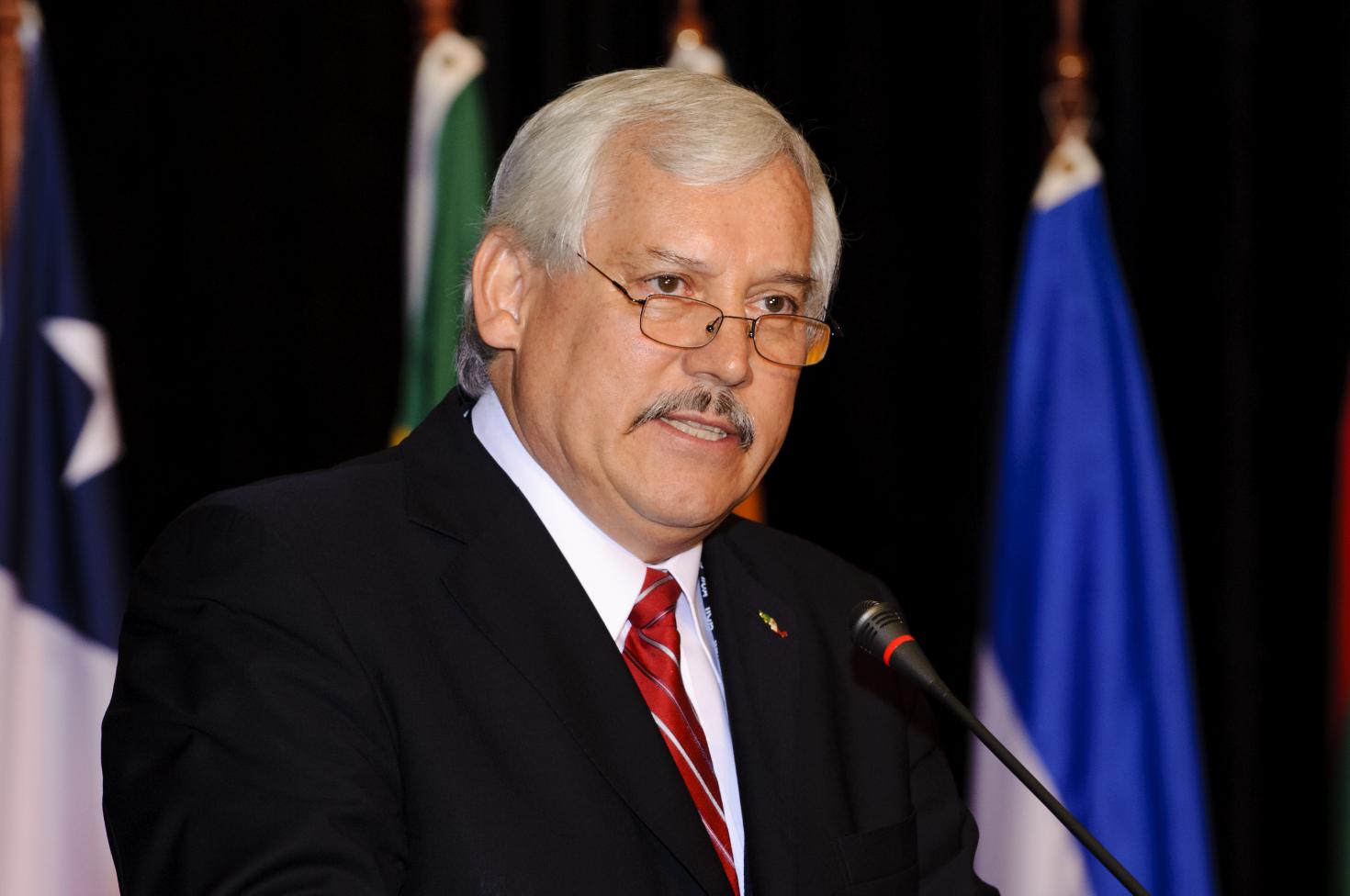The Director General of IICA, Víctor M. Villalobos, shared his outlook on agriculture at the Forum on the Challenges of the Agrifood Sector 2016-2025, held in Honduras.

Tegucigalpa, 22 January 2016 (IICA). Speaking before a large national and international audience, the Director General of the Inter-American Institute for Cooperation on Agriculture (IICA), Víctor M. Villalobos, called for strengthening innovation in agriculture, a topic he believes is fundamental to driving development in the sector and addressing the great challenges facing humanity.
“Technology in agriculture is critical to adequately responding to future demands. For this reason, we must make greater investments in research, human resource development, and technology extension and transfer,” stated Villalobos during his speech at the Forum on Challenges to the Agrifood Sector 2016-2025, held this past Wednesday in Tegucigalpa.
According to Villalobos, traditional technologies must be restored and applied together with new technologies, and new technologies must be developed and adjusted to each region. He also spoke about the need to produce more using the same surface area, increase production yields and avoid post-harvest losses.
“We must increase agricultural production by at least 70% by 2050, and we must undertake this task in a sustainable way,” he stated.
At the meeting, the Director General reviewed the four challenges that indicate that innovation is the right way forward:
- How can we feed humanity in the future?
- How can we go about this in a sustainable manner, causing as little damage as possible to natural resources and in the face of greater climatic variability?
- How can we succeed in making agriculture good business for all producers?
- How can we contribute to achieving a more sustainable and inclusive agriculture?
Villalobos explained that if agriculture continues to be practiced as it is today, it will be impossible to provide sufficient food for the growing global population, while ensuring the preservation of natural resources, especially considering that the middle class is expected to double in size by 2022 and that the pounding effects of climatic variability are as frequent as they are inevitable.
“The growth of the middle class affords the opportunity to export our agricultural products, and to develop our markets. Agriculture should be good business for farmers − a profitable activity,” he stated.
He added that diversifying, promoting and adding value to family agriculture is therefore critical, as is avoiding deterrents to production, such as high energy costs, high prices for consumable goods, uncertainty, and erratic policies.
The Forum on Challenges to the Agrifood Sector 2016-2025 is led by the Secretary of Agriculture and Livestock of Honduras, Jacobo Paz.
CropLife Latin America and the Honduran Association for the Agricultural Health and Fertilizer Industry also participated in and organized the forum, with support from the National Federation of Farmers and Livestock Breeders of Honduras and US GRAINS.
More information: evangelina.beltran@iica.int











